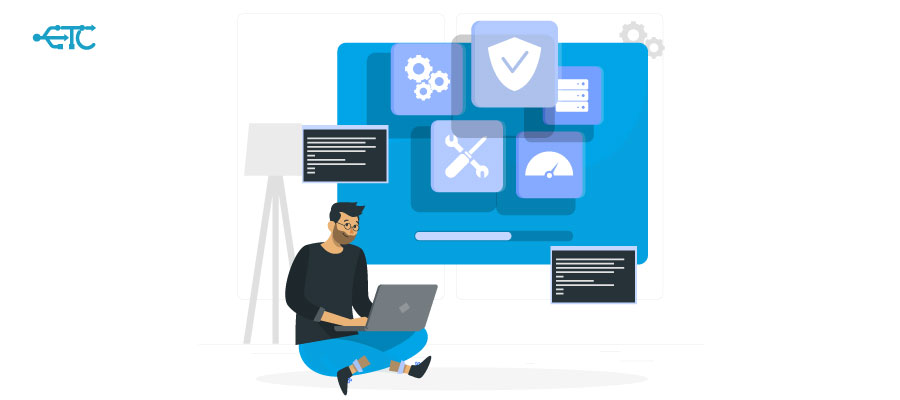What are software development methodologies ?

The software occupies now a prominent place in terms of technological innovation dynamics.
Throughout the years, the software is becoming increasingly important thus playing generally an essential role in the economic development.
This observation urges us to reflect on the different needs as well as on the Software development methodology that best fit any business and which in essence makes it possible to best reduce the risks and costs. As such, there is a series of methodologies whose approach to each differs from the other in more than one respect.
However, all methodologies have a common denominator, namely: Helping developer teams create high quality software within a reduced time-limit and at a reduced cost.
Agile methodology
It is all about a method of project management which in turn is divided into numerous methods arising from the whole of the agile manifesto.This latter was established in 2011 by a team of software developers and aims to improve the software development process while minimizing the failure rate as much as possible. In order to achieve this the approach is client-first, the approach is designed with the client in mind placing it at the project center, adaptations are then made as the project progresses. What follows from that is in fact a matter of a new approach based on the determination of the project objectives in the short term.
This way, the software development project is divided into different fragments which must be carried out by the team in a progressive manner.
Adjustments are made throughout this process at the level of the objectives to best meet the expectations and needs of customers. It is worth noting that the Agile methodology is essentially based on two principles: suppleness and flexibility.
Iterative methodology
This method is close to that of Agile which also has an iterative aspect based on a step-by-step model. However, the iterative methodology differs from Agile by the fact that it satisfies two essential needs, namely : meeting delivery deadlines and determining in advance project costs; as well as the possibility of having access to a fringe of innovation.
Moreover, the iterative method is aimed more at teams of developers who tend to prefer a traditional approach in terms of organization and which operate in a rather rigid context.
The main advantage of the iterative method is the possibility to work on different project ideas in a relatively flexible way making it possible to have access to innovation.This manoeuvre is carried out within the framework of compliance with specifications and contractual requirements that were initially defined with little flexibility.
DevOps Methodology
The appellation of DevOps comes from two words: developer and operational.
This methodology is based on the possibility of maintaining communication and collaboration between developers and operational staff on the software development project.
The DevOps method allows a certain number of advantages including saving time to solve problems, process automation and risk reduction, implementation of new functionalities as well as increasing customer satisfaction.
The DevOps method is based on steps that make it possible to improve collaboration between the different teams of developers and consequently lead to better efficiency. These steps can be broken down into culture, automation, results and the feedback.
Lean methodology
This method for developing software is inspired by the processes and activities of ethical design. The Lean methodology is based on seven foundations, namely: the elimination of waste, the reinforcement of learning, postponement of decision-making, fast delivery, developer accountability, as well as process integration.
Lean methodology is based on the fact of focusing on a task to be carried out at a time T. According to this configuration, there is no need to multitask. It is a question, through the Lean method, to wait for the performance in terms of product quality, delivery time-line, productivity as well as cost reduction. Objectives that can be achieved through a process of continuous improvement as well as the elimination of waste.
Cascade methodology
Cascade method consists in fragmenting the process of software development into six main steps while being subject to certain variations. The advantages of this method are the degree of the process relevance as well as the accelerated pace at the level of the transition from one stage to another.
However, this methodology has a drawback with regard to the approach followed, namely: the inability to go back. So there is much less flexibility compared to other methods. but in return, delivery times are well respected this advantage makes the methodology Cascade the best option for companies that want to develop a software without however having a large margin of intervention.
Thus, this methodology is based on a six-step process:
- Fixing the project different requirements
- Implementation of an integral analysis
- Creation of a software development project
- Start of putting into operation of the project
- Validation of the project by the team of developers
- Effective implementation of the project
We will understand, there is a good battery of software development methodologies used by developers. Each method has certain advantages and some disadvantages.
The choice of the method to follow depends essentially on the objectives set by the software development project, business needs with regard to software, as well as the constraints to which the organization is subject and which can be technical or financial.
To ensure the correct choice of methodology, a company must be based on two approaches: The qualitative approach which allows meeting the project comprehension objectives and explaining the execution process. The quantitative approach which makes it possible to establish a relevant analysis of the impact of one variable with respect to another.
Software Development Listings
